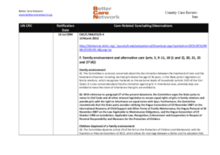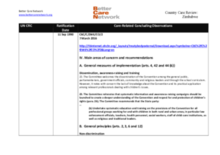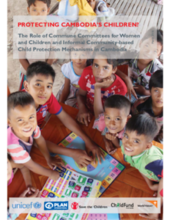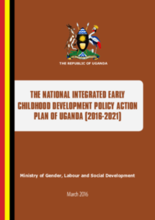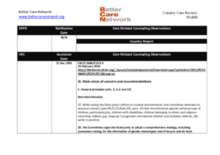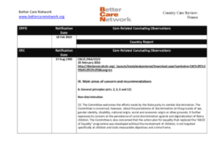Displaying 911 - 920 of 1796
This country care review includes the care-related Concluding Observations adopted by the Committee on the Rights of the Child.
This country care review includes the care-related Concluding Observations adopted by the Committee on the Rights of the Child.
This country care review includes the care-related Concluding Observations adopted by the Committee on the Rights of the Child.
This article draws on Giorgio Agamben's (1995) theory of 'bare life' to examine the identity and the political positioning of child welfare-involved mothers in contemporary Western child protection systems to complement the primary focus on their children.
This study was aimed at filling a gap in information on Commune Committees for Women and Children (CCWCs) and their function. This study examines the successes of CCWCs in implementing and achieving policy goals, and the roles they play in linking children and families to child protection services.
The National Integrated Early Childhood Development (NIECD) policy of Uganda seeks to address multi-dimensional needs of young children through building more effective and coherent efforts among sectors to achieve positive early childhood development out comes for all children.
This country care review includes the care-related Concluding Observations adopted by the Committee on the Rights of the Child.
This country care review includes the care-related Concluding Observations adopted by the Committee on the Rights of the Child.
The current study employed interpretative phenomenological analysis to explore 18 in-depth, qualitative interviews from six participants on the meaning and experience of motherhood among teenage mothers in the United States in foster care in the and in the years immediately after ageing out.
This paper builds on a recent evaluation of the piloting of the continental European model of social pedagogy (SP) in English residential care. It does three things: it considers the theoretical social policy literature on policy transfer and its implications; discusses European residential care for children and the discipline of SP; and reflects on these debates and the situation of children's residential care in England.

